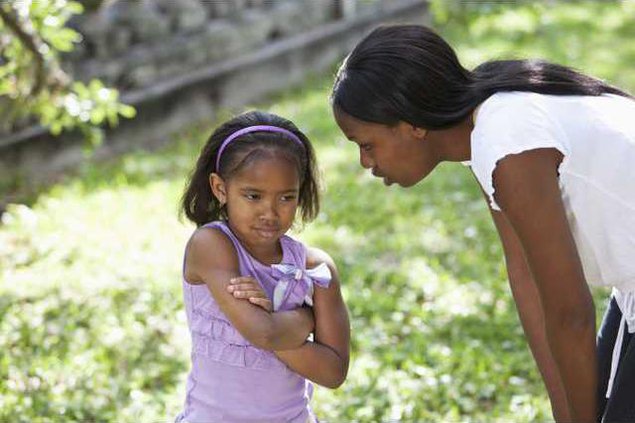How many times have you uttered the words, "Say you're sorry!" only to get a lame "Yeah... sorry... whatever" in response? Telling our kids to apologize to their siblings, friends and to us often feels like an exercise in futility. We know they don't really mean it. They know they don't really mean it. The person who's been wronged knows they don't really mean it. There has to be a better way.
Successful apologies come from using a set formula designed to get kids thinking about their own responsibility during a conflict. We can't expect our children to grow if they are unsure of what, exactly, they're doing wrong. Unfortunately, empathy is not an innate characteristic. If we want kind kids, we have to teach them to see the world from someone else's perspective. It all starts with admitting mistakes and apologizing sincerely. Here is an easy 4-step apology to teach your kids.
I'm sorry that I...
Kids need to identify, not deflect, their role in conflict. As a natural response, most kids will start with, "but he..." or "she did it first." Teach your kids to accept their contribution to the problem by 1) using the word "I", and 2) identifying exactly what they did wrong. If your child starts with an apology but has a hard time putting into words what she did wrong, help her fill in the blanks. This is much easier if you have clearly defined family rules.
Here are some examples of step 1:
I'm sorry that I pushed you down.I'm sorry that I called you a name.I'm sorry that I took something of yours without asking.
Next time I will...
Do you feel like you're fighting the same parenting battles over and over? We need to help our kids identify ways they can improve future behavior. Having a game plan for conflict cuts down on future recurrence. Once again, young kids will need help with this step, and older kids might try to throw in some attitude during this step. Don't let them get away with it. This is probably the most important part.
Here are some examples of step 2:
Next time I will keep my hands to myself.Next time I will choose nice words or keep quiet.Next time I will ask before borrowing.
Can I do ______ to make it right?
Restitution is an important, often overlooked, part of the apology process. Saying you're sorry is nice, but showing that you're sorry is even better. Children need to learn that their actions have consequences, and those consequences include making things right to a person they've wronged. This could include giving a compliment after name calling, replacing or repairing damaged property or simply asking the wronged party what he needs to feel better about the situation.
Here are some examples of step 3:
Can I give you a hug to make you feel better?I think you're a very nice person.Can I lend you one of my shirts to make it right?
Can you forgive me?
It would be nice if the injured party always forgave, but teach your kids that, even if they aren't forgiven, it's still important to try. This also gives the wronged child a chance to practice his social graces.
Everyone makes mistakes, and we have to teach our kids to handle missteps graciously. We all know an adult who has difficulty admitting fault and apologizing, so start teaching your kids young. Pride, arrogance and stubbornness are the results of not learning to apologize, so enforcing an apology policy in your home is well worth your time.
Heather Hale is a fourth-generation Montanan, mom to three crazy boys, and wife to one amazing husband. You can learn more about her eco-conscious lifestyle at moderatelycrunchy.com.





